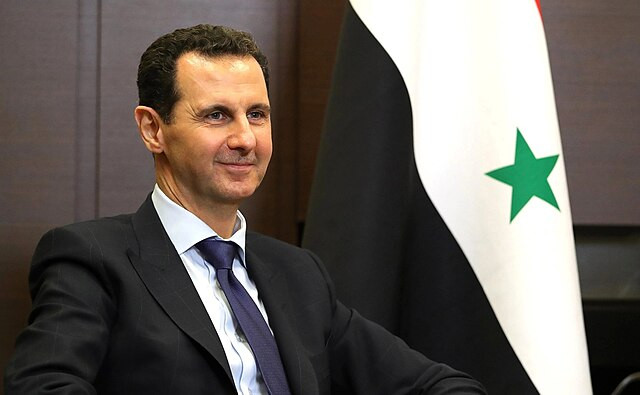Bashar al-Assad's regime secretly transferred $250 million in cash to Russia over the course of 18 months, according to records revealed by the Financial Times.
Between 2018 and 2019, more than 20 flights carried two metric tons of U.S. dollars and euros from Damascus to Moscow, underscoring the Syrian leader's reliance on his Russian allies during the height of the country's civil war. The funds, transported in large denominations of $100 bills and 500 euro notes, were deposited into Russian banks sanctioned by Western powers, including RFK Bank and TsMR Bank. The timing and scale of the transfers raise questions about Assad's financial maneuvering as his regime faced mounting debt and isolation.
Assad's downfall earlier this month, following a swift rebel offensive led by the Islamist group Hayʼat Tahrir al-Sham, has brought renewed scrutiny to these transactions. Russia's military intervention in Syria, starting in 2015, had been pivotal in sustaining Assad's grip on power, but it came with significant financial obligations. Analysts suggest the cash transfers may have been used to pay off Russian support, fund ongoing military efforts, or secure the Assad family's wealth abroad. David Schenker, former U.S. Assistant Secretary of State for Near Eastern Affairs, noted that the regime likely sought to protect its assets while navigating a dire economic landscape.
"The regime would have to bring their money abroad to a safe haven to be able to use it to procure the fine life," Schenker said.
The newly revealed records show a systematic effort to move substantial sums of money out of Syria during a time when the central bank faced a critical shortage of foreign currency. In one instance, a flight in May 2019 reportedly carried $10 million in cash to Moscow's Vnukovo Airport. The shipments ceased in September 2019, coinciding with increased international sanctions and financial scrutiny on both Syria and Russia. Malik al-Abdeh, a Syrian analyst based in London, speculated that the transfers could reflect payments for Moscow's military intervention, which had tipped the scales in Assad's favor during key battles like the siege of Aleppo.
Despite Russia's support, Assad was unable to maintain control of Damascus, which fell to rebel forces earlier this month. Fleeing to Moscow on December 8, Assad and his family reportedly joined a growing list of exiled leaders who have sought refuge in Russia. Eyad Hamid, a senior researcher at the Syrian Legal Development Program, described Russia as a longstanding financial haven for the Assad regime. The former president, now in exile, issued a public statement claiming he never intended to step down, though his departure was seen as inevitable amid the collapse of his government.
The revelation of these cash transfers has sparked fresh debate over accountability for Assad's regime. Human rights organizations and legal experts are calling for an international effort to hold Assad and his inner circle responsible for the atrocities committed during his rule. David Crane, former chief prosecutor for the Special Court for Sierra Leone, emphasized the importance of justice for Syria's people, noting the need for a credible mechanism to address grievances and uphold international law.
The financial dealings also highlight Russia's strategic interest in maintaining influence in Syria. Moscow's naval base in Tartus, its only foothold in the Mediterranean, has been a critical asset throughout the conflict. Satellite imagery suggests Russian forces vacated Tartus following Assad's ouster, but negotiations are reportedly underway to ensure continued access under Syria's new leadership. The transfers further underscore the deep financial ties between the two nations, as well as the broader geopolitical implications of Assad's regime.




